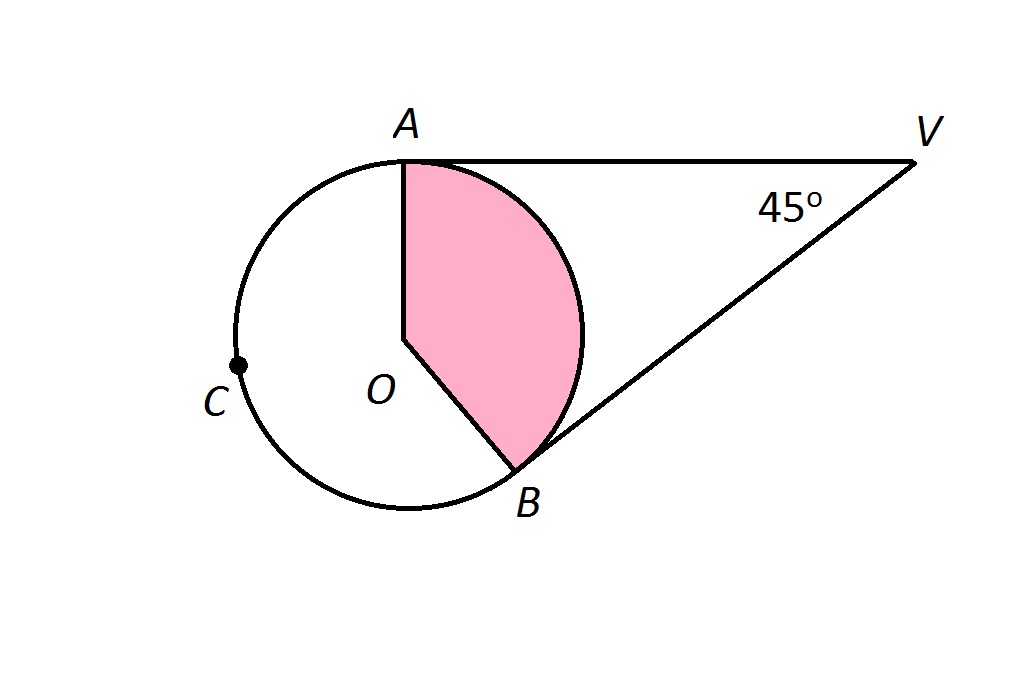All HiSET: Math Resources
Example Questions
Example Question #81 : Hi Set: High School Equivalency Test: Math
The area of a square is 

The length of one side of a square is equal to the square root of its area, so, if the area of a square is 


Example Question #1 : Perimeter And Circumference
The perimeter of a regular octagon is 
A regular octagon has eight sides of equal length. Its perimeter is equal to the sum of the lengths of its sides, so the length of one side can be computed by dividing the perimeter by 8, as follows:

the correct response.
Example Question #2 : Perimeter And Circumference
Give the perimeter of a regular octagon in yards if the length of each side is 






The perimeter of a regular octagon - the sum of the lengths of its (eight congruent) sides - is eight times the common sidelength, so the perimeter of the octagon is 

Example Question #84 : Hi Set: High School Equivalency Test: Math

Hexagon 

A regular hexagon can be divided into six equilateral triangles, as follows:

The perimeter of Trapezoid 

Example Question #1 : Arc Length And Area Of A Sector

The depicted circle has a radius of 3 cm. The arc length between the two points shown on the circle is 
First, find the area and circumference of the circle using the radius and the following formulae for circles:
Substituting in 3 for 
Next, find what fraction of the total circumference is between the two points on the circle (the arc length).
Finally, use this fraction to calculate the area of the enclosed sector. Note that this area is proportional to the above fraction. In other words:
So the Sector Area is one sixth of the total area.
Cross multiply:
Divide both sides by 6, then simplify to get the final answer:
Example Question #1 : Arc Length And Area Of A Sector




The radius of the circle is given to be 



The length 

Thus, it is first necessary to find the degree measure of 
Letting 
We are also given that
Making substitutions, and solving for 
Multiply both sides by 2:
Subtract 360 from both sides:
Divide both sides by 

the degree measure of 
Thus, the length 

Example Question #2 : Arc Length And Area Of A Sector



The information given is insufficient to answer the question.
The radius of the circle is given to be 

The area 
Thus, it is first necessary to find the degree measure of 
Letting 
We are also given that
Making substitutions, and solving for 
Multiply both sides by 2:
Subtract 360 from both sides:
Divide both sides by 

the degree measure of 
Thus, the area of the shaded sector is
Example Question #3 : Arc Length And Area Of A Sector



The information given is insufficient to answer the question.
The radius of the circle is given to be 

The area 
Thus, it is first necessary to find the degree measure of 
Letting 
We are also given that
Making substitutions, and solving for 
Multiply both sides by 2:
Add 360 to both sides:
Divide both sides by 2:

the degree measure of 
Therefore, the area 
Example Question #21 : Properties Of Polygons And Circles




The radius of the circle is given to be 
The total circumference 


The length 

Thus, it is first necessary to find the degree measure of 
Letting 
We are also given that
Making substitutions, and solving for 
Multiply both sides by 2:
Add 360 to both sides:
Divide both sides by 2:

the degree measure of 
Thus, the length 

Example Question #22 : Properties Of Polygons And Circles

Refer to the above figure. Give the ratio of the area of Sector 2 to that of Sector 1.
The ratio of the area of the larger Sector 2 to that of smaller Sector 1 is equal to the ratio of their respective arc measures - that is,

Therefore, it is sufficient to find these arc measures.
If the sides of an angle with vertex outside the circle are both tangent to the circle, the angle formed is half the difference of the measures of the arcs. Therefore,
Letting 
We are also given that
Making substitutions, and solving for 
Multiply both sides by 2:
Add 360 to both sides:
Divide both sides by 2:

the degree measure of 
It follows that
By the Arc Addition Principle,
Since 



and
The ratio 

a 5 to 1 ratio.
All HiSET: Math Resources












































































































































